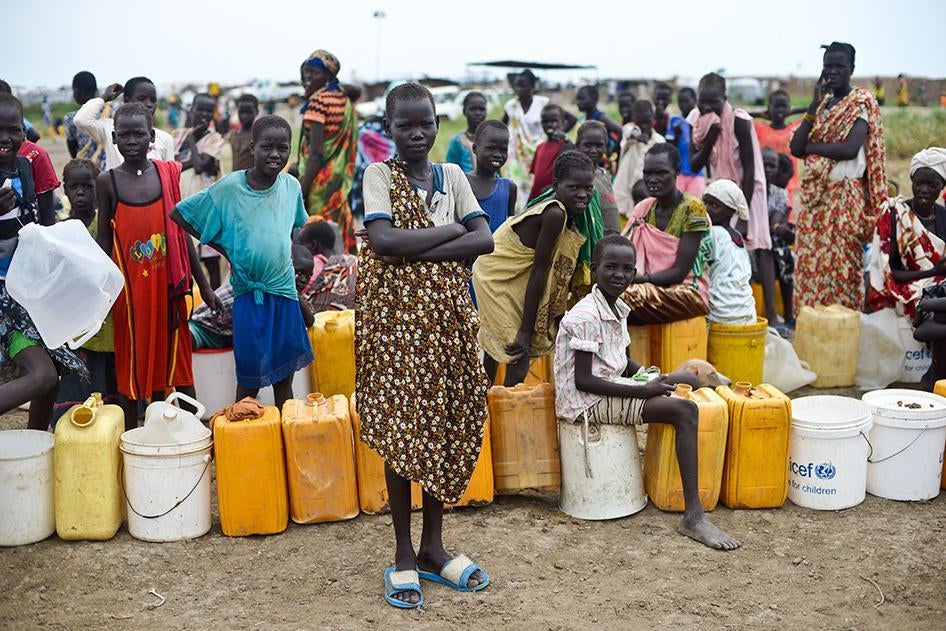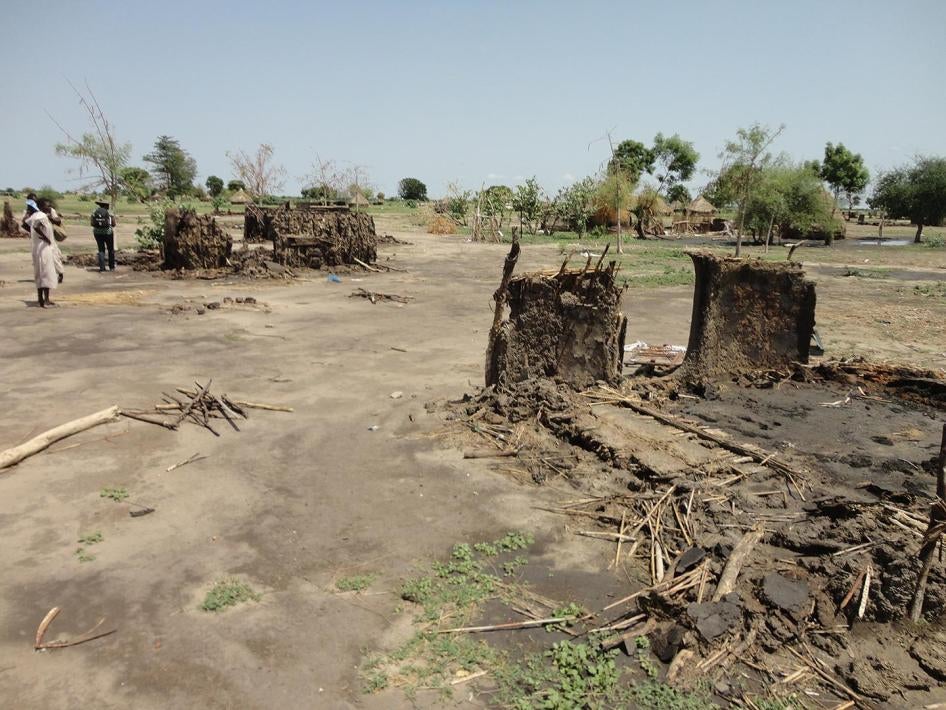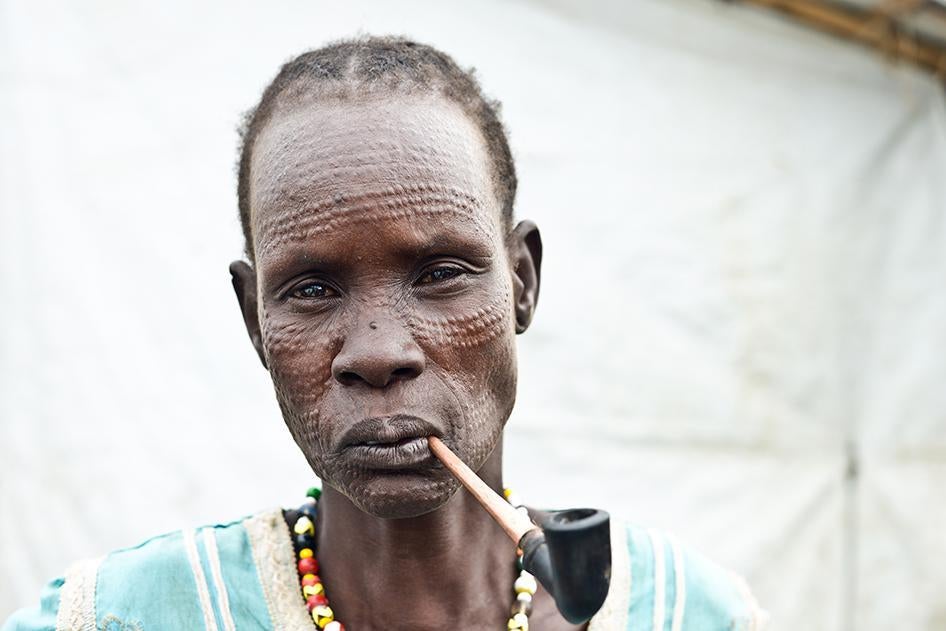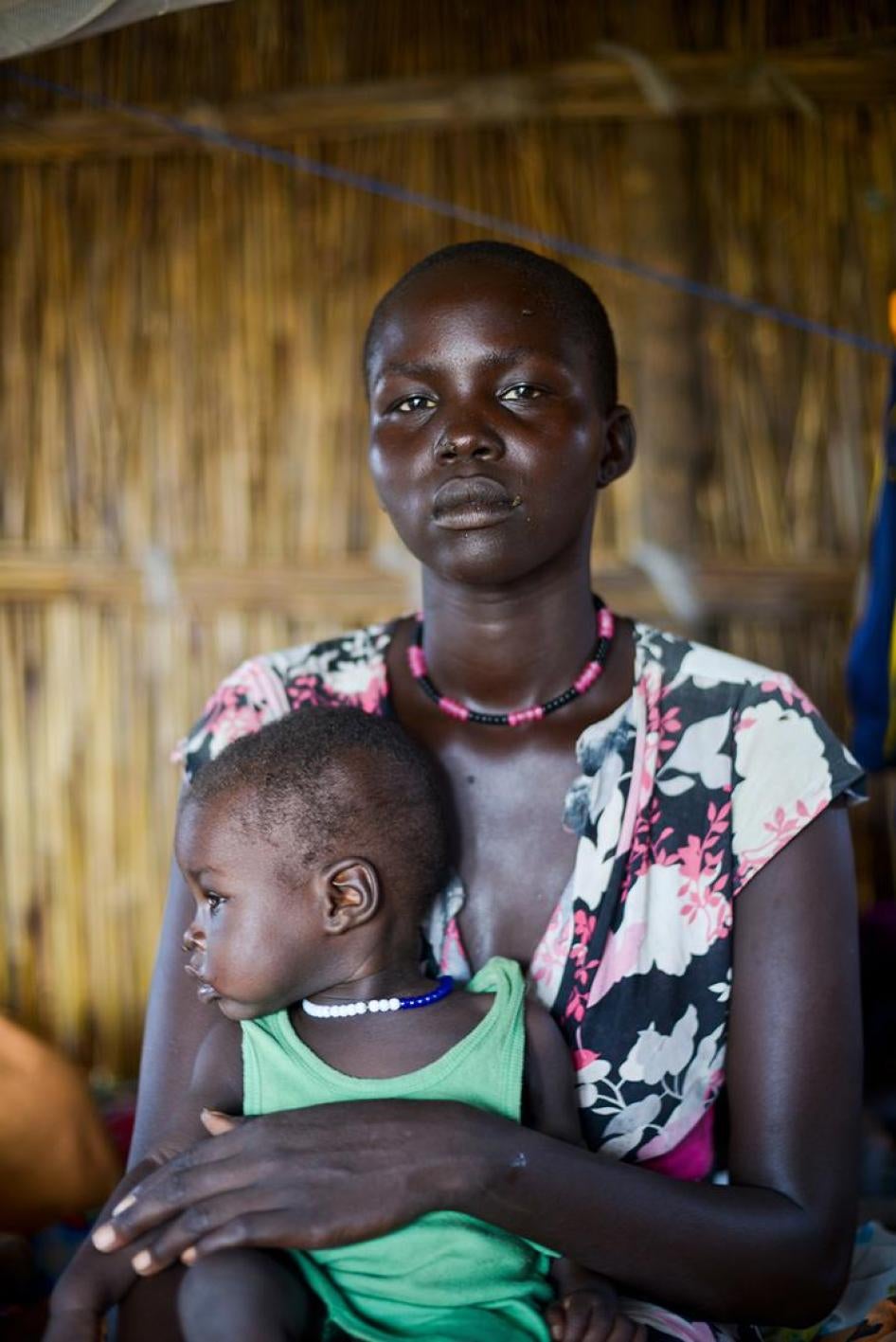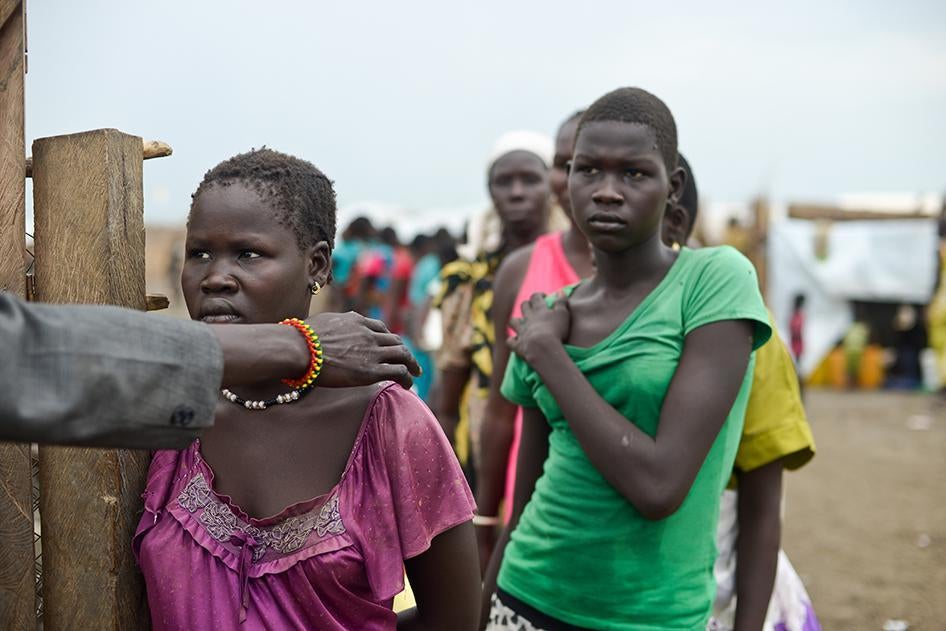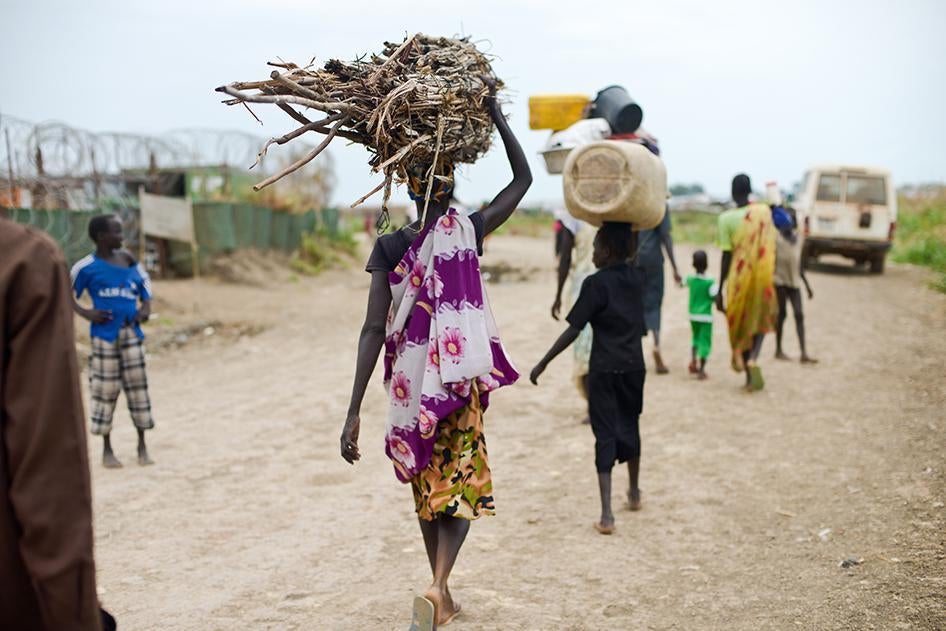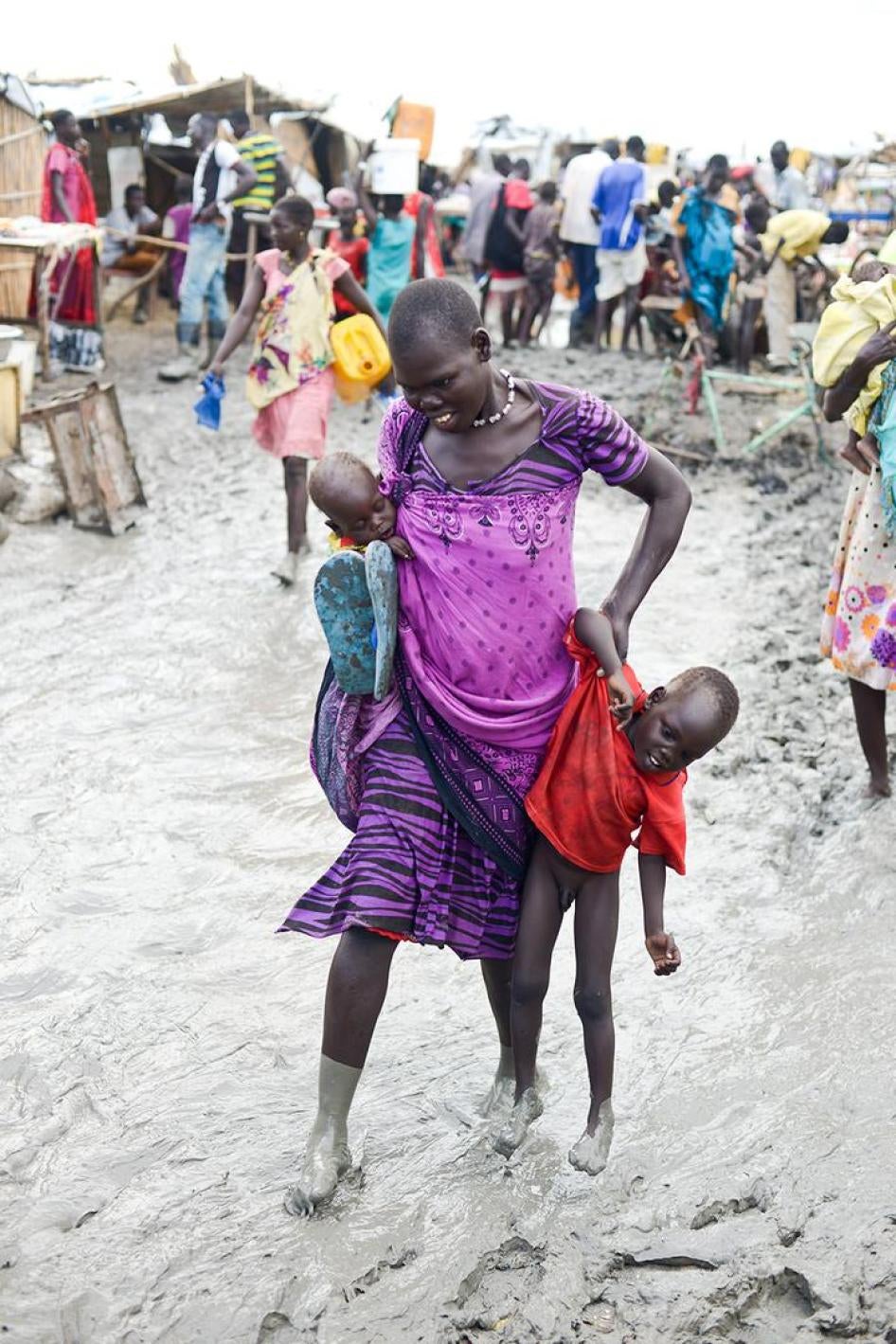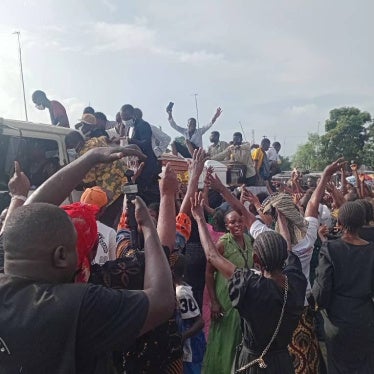Four years after South Sudan became the world’s newest country, its civil war has reached horrific levels of violence. Between April and June, government forces, together with Bul Nuer militia, carried out an aggressive offensive in Unity State. Despite meeting little resistance in many areas – only women, children, and the elderly remained in most villages – troops killed civilians, torched homes, and beat, raped, and abducted women. At least 100,000 people have been displaced and untold numbers are left suffering. South Sudan researcher Skye Wheeler speaks with Amy Braunschweiger about the report, “They Burned it All,” and this horrible new phase in South Sudan’s civil war.
The report documents what happened to the women and children, but where were the opposition fighters?
There were opposition fighters who did fight in some villages, but in most cases, men fled the advancing army and militia to run with their cattle – which serve as cash in South Sudan – or because they feared execution. Many of the women we spoke with stayed behind because they thought they’d be safe in the villages since they aren’t combatants. And it’s true that soldiers didn’t kill all the civilians. But they burned down homes, and abused women terribly. If the men had stayed behind, they would have risked being killed.
Also, the South Sudanese often have many children. To run with one or two children is hard, but to run with four or five or eight is incredibly difficult, so women don’t do it unless they have to.
I can’t tell you the number of times since this conflict began that women have told me they could only flee with a couple of their children, sometimes having to leave some behind. One woman talked about trying to get her children across a river, and how two drowned. It was heartbreaking.
The fighters destroyed everything people need to survive. Troops stole valuable goods like sugar and oil, and also stole beer. They often burned the stores of sorghum or other food inside the huts. Soldiers also stole tens of thousands of cattle, which are the main source of wealth in South Sudan – you can’t marry without cattle, and they provide milk and food during emergencies. The people we spoke with experienced the equivalent of someone burning down your house and then wiping out your bank account, leaving you completely destitute.
In at least four locations, the compounds of non-governmental organizations or humanitarian organizations were also wrecked. Packets of seeds for planting were destroyed, furniture pillaged, health materials scattered, textbooks pulled into the mud and ruined. It was wanton destruction.
What else did you find?
A lot of sexual violence, and we suspect that what we found is just the tip of the iceberg. Almost all the 123 people we interviewed on the United Nations base near Bentiu had heard of a rape and we documented 56 cases, meaning we either spoke directly to rape victims or to people who witnessed rape. Women were often raped in groups, so a rape victim would report others that were raped with her, and witnesses often saw more than one rape at a time.
We spoke to a woman who had a 2-month-old baby and who was raped together with two other women. She was only raped once, because she had just given birth, but her friends were raped by two or three soldiers each.
Another young rape survivor we spoke with, she was 19 or 20 years old, was unusually defiant despite the deep shame associated with rape in South Sudan. She was so angry this had happened. She described being taken by fighters into the forest. They shot a gun into the air, told her to lie down, they all raped her and left her there. She talked about the blood and the pain. She couldn’t walk for a long time, and had a hard time fleeing and finding refuge.
We also heard reports of rape victims who had not been able to reach the UN base because of the severity of their injuries.
Where are the victims of these attacks now? Are they all in UN camps?
Some may still live in the area, and some will have fled into swampland – the really wild, swampy areas are traditional places of refuge. People there live off water lily and the roots from plants, but it’s a difficult existence.
There were about 30,000 new arrivals at a UN base at the end of June. These are the people who have no way to survive in their home areas without cattle, food, or shelter.
What are the UN bases like with such an influx of people?
Humanitarian workers in the UN base are working around the clock to get these people what they need -- food and shelter. But when they first arrive, they have very few options, the base is dirty and crowded, and they can’t even get plastic sheeting to protect them from the weather.
When I was on a base, one young woman holding her baby came up to me asking me to help her. She kept showing me her baby, and I told her I was sorry, I wasn’t a humanitarian worker and if her baby was sick she should go to the clinic. She said her baby wasn’t sick, it was born yesterday and that she didn’t have anywhere to sleep, the base was so overwhelmingly crowded. That night, an enormous rainstorm rushed in, with heavy rains and gusts of wind. I didn’t see her again, and have no idea if she managed to find anything, even a plastic sheet to shelter with her baby that night.
What needs to happen to end these attacks on civilians?
I spoke with one grandmother, an old woman with only a few teeth, a wrinkly face, and thick calluses on her feet. She walked dozens of kilometers barefoot to reach the base. And she said to me, “I hope that our armed youth will go back to them and steal their cows and rape their women.” It shocked me, coming from this old granny, but there’s such a desire for revenge that just feeds into the violence. There needs to be a different way of finding justice. This area has seen decades of abusive leaders, decades of war crimes not being addressed. There needs to be some kind of accountability, as opposed to just feeding a cycle of reprisals and revenge attacks.
What can the international community do?
It is doing the right things calling for sanctions and implementing sanctions against commanders. But we need to see sanctions reaching those who are planning and ordering these awful attacks, including leaders with bank accounts and property in neighboring countries like Kenya and Uganda. We also desperately need an arms embargo to stop the flow of new weapons and military hardware to the parties, who are mainly using them against civilians. Peace talks have so far failed, and a peace agreement could clearly help end the fighting and the killing of civilians, but any agreement needs to ensure that there is no amnesty for fighters and that there is a clear agreement for justice and accountability, whether through a hybrid court, an International Criminal Court investigation, or both.
The UN is providing food and shelter to the best of its ability, but we’d also like people to receive more psychosocial and medical care, as well as outreach to communities so they know that these services are available.
There’s talk of a potential famine in South Sudan. How will these attacks affect this?
The timing of this offensive surprised many people, including the people living in the affected villages. Fighting normally takes place in the dry season, and this is the onset of the rainy season, but the rains haven’t been good. This is also the time to plant crops in South Sudan, and of course planting isn’t happening in much of the affected area. There is already food insecurity in Unity State, and a warning against a famine in some areas. The fighting has made it impossible for most people to plant crops, meaning that tens of thousands are relying on food aid. Meanwhile humanitarian workers are struggling to deliver aid to many places, especially given that people are dispersed in the swamps, and the rains make it even more difficult for humanitarian workers to find people and help them.
This interview has been edited and condensed.
